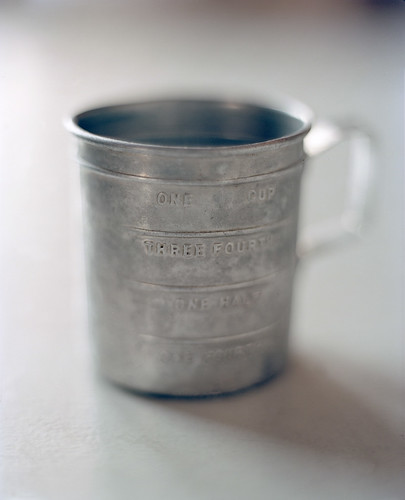Villages in dark mountain valleys: the morning of the sixth was haunted by great shadows looming from the East. Peter stared out the window, gazing as much at his own reflection cast upon the window as upon the darkened hamlets and farmlands upon which his visage was transposed. In the darkness from the East, his own features were all the sharper, and those villages' were but ghosts. The train passed through a tunnel. Against the black stone walls, there was nothing in the window but that face, still recognizably his own, but altered. The change was not in his expression, ever thoughtful, nor in the shapes and lines of his cheeks and mouth - for all the beasts and magicians, for all the blood shed in the Sindh, he had not gained any more gray hairs. But to be sure, Peter regarded his face in a new way. It was cast upon a world darker than ever before, and in this image on glass Peter could now detect a person capable of violences that he had only ever considered bringing down upon himself.
From the black heart of the mountain, the train emerged with a roar. Peter's reflection went pale against the new backdrop of cultivated fields, filled with neatly box-shaped plots of red-gold wheat. A tractor plied the distant edge of a field, seemingly plowing the lines across Peter's forehead as the train went by. In the distance, scarecrows or effigies - or hung men - swayed beneath a lone tree.
Then Bucharest, capital of the yet new Romania Mare! An hour in the station, but, alas, there was not time enough for touring. Whilst Irene set about to stretching her legs at the station, Peter sat resting in the passenger car. Still not entirely awake, he avoided meeting the gazes of other passengers and instead allowed his eyes to fall gently to the right and fix upon an airy point somewhere above the wooden platform beyond the window. The crowds bustled by, and Peter, barely looking at them, felt reassured by them. Surely, travelers in Bucharest moved around one another in paths as varied and wandering as those taken by ants on their hill, but there was an implicit order here, quite distinct from the crush of pushing, swarming masses at Karachi, in Tehran. He watched the ant-people moving about and let himself fall into a tired trance.
There was a tap on his shoulder, and a jingle. Peter instantaneously resolved to pretend that he didn't notice either stimulus. But there were too few other shoulders to tap, and once again, Peter felt a mild tug on his shirt sleeve. He blinked once and, annoyed, looked.
Though his eyes were immediately drawn to the mask, the first thing that he recognized was the metal cup being held out to him. Had it not been for the strange hide-and-wood mask that the child wore, Peter would have immediately identified his antagonist as an ordinary beggar and called for its expulsion from the train. He almost did anyway, but he heard a chuckle from an old man who had been sitting across the aisle from him since Giurgiu. "Bucovinian," the man said, and the child again jingled its cup. The mask was assembled from the skin of some forest beast, perhaps a bear, but sewn into a round plate, grafted onto which were two round ears made of some more common hide. The whole piece seemed to be shaped onto a wooden mold, which lacked a jaw. Long whiskers, pulled from some unlucky cat, signaled that the face was meant to be a rat's. The child's slight, dirty chin protruded from beneath the brown morass; its eyes, shining from behind the bear-rat-face, were blue.
"You don't have to give him anything, Pashtili Blajinilor vas days ago."

(Tin cup photo by Alastair Bird, 2008.)

"No, it's fine," Peter assured the man he presumed to be the child's grandfather. Eager to do something kind, Peter dug out a small, crushed paper bag from his coat pocket. The bag crinkled as Peter opened it and upended it above the tin cup. He gave it a gentle shake, whereupon two pinkish pieces of rose-flavored lokum (no longer fresh but still very edible) tumbled therein.
ReplyDelete"Mulţumesc." The child's delicate voice was half-muffled by the mask. It rested a grimy fist on the seat next to Peter. "A lua," it said as it opened its fingers to reveal a set of thick little fingers and rough-hewn fingernails, more like the digits of some faerie miner than a child's. Lifting its hand away, the child revealed a crumpled lump of dyed eggshells and membranes. Royal purple, light blue, red, pink; the shells had all gone a little brown since they had been peeled. Easter had been almost two weeks ago, on the twentieth - it was all too easy to overlook Christian holidays when one was surrounded by persons of other persuasions and caught up in the rhythms of their lives.
ReplyDeleteThe mask wobbled a little on the child's head as it turned away towards the old gentleman. He held up his hand and shook his head, and the child left to the next car. Peter looked to the man and gestured at the eggshells. "For Pashtili Blajinor. Send them downstream," he said, "to let the blajini know that Easter has come. Though, if you are a purist in your beliefs, you might as vell just throw them avay. It is not exactly a canonical practice in Vallachia."
More to remove the mess left behind by the child than in any observation of local custom, Peter collected the multicolored, semi-spoiled shells in his hand and deposited them in the nearest water closet before washing his hands and returning to his seat.
ReplyDelete